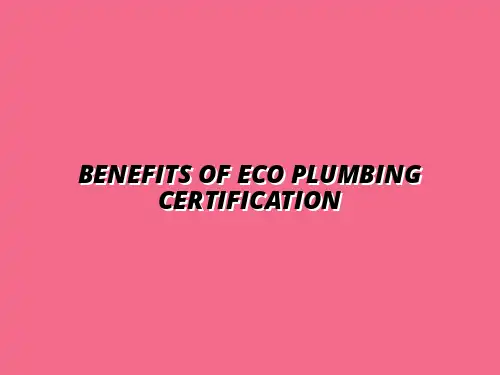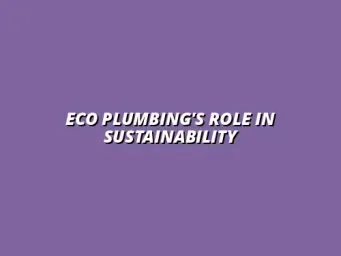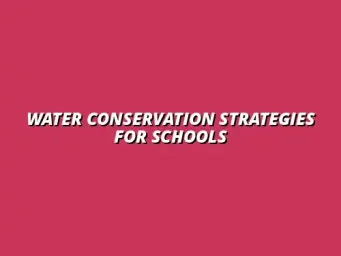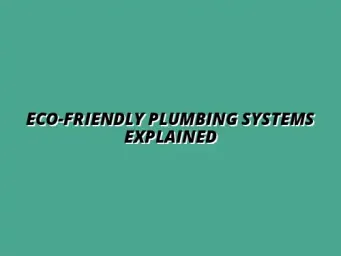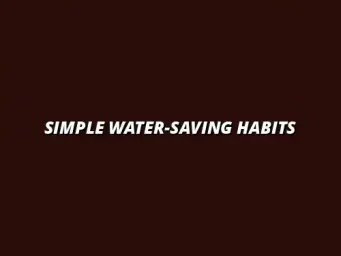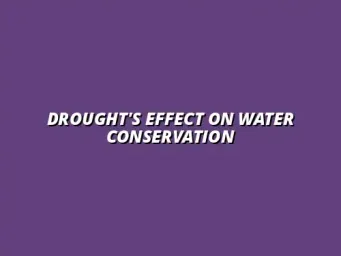Understanding Eco Plumbing Certification Programs
Eco plumbing certification programs are designed to provide plumbers and contractors with the knowledge and skills needed to implement sustainable practices in their work. These programs focus on the principles of environmental stewardship, aiming to reduce the ecological impact of plumbing systems. By participating in such certifications, professionals are not only enhancing their skill set but are also contributing to a more sustainable future.
In essence, eco plumbing integrates modern plumbing practices with a focus on energy efficiency, water conservation, and the use of environmentally friendly materials. This helps create systems that are not only functional but also beneficial to the planet. For homeowners looking to implement eco-friendly practices, this guide to eco-friendly plumbing is a great resource.
What Are Eco Plumbing Certification Programs?
Eco plumbing certification programs serve as structured pathways for individuals to gain expertise in sustainable plumbing techniques. They encompass various aspects, including water-efficient fixtures, renewable energy systems, and waste reduction strategies. Overall, these certifications offer a comprehensive approach to plumbing that prioritizes sustainability.
With different programs available, individuals can select one that aligns with their career goals and interests. Programs can vary significantly in content, length, and focus areas.
Defining Eco Plumbing and Sustainability in Plumbing
Eco plumbing refers to plumbing practices that are designed to minimize environmental impact. This includes using materials and systems that conserve water, reduce energy consumption, and promote the use of renewable resources. The goal is to create plumbing solutions that are sustainable and efficient.
Sustainability in plumbing is about finding a balance between the needs of people and the health of our planet. It involves understanding how plumbing systems affect the environment and taking steps to mitigate negative impacts. For new builds, you'll find valuable information on green plumbing for new constructions.
Types of Eco Plumbing Certifications Available
- GreenPlumber Certification: Focuses on water conservation and energy efficiency.
- LEED Accreditation: Integrates eco-friendly design principles into plumbing.
- WaterSense Certification: Centers on water-saving technologies and practices.
- Renewable Energy Installer Certification: Covers solar water heating and geothermal systems.
Each type of certification provides unique benefits and focuses on different aspects of eco plumbing. These certifications often require ongoing education to ensure that professionals stay updated on the latest sustainable practices.
The Importance of Eco Plumbing Certification
Obtaining an eco plumbing certification offers numerous benefits for plumbers and contractors alike. First and foremost, it enhances credibility in the industry, as clients often seek professionals who are knowledgeable about sustainable practices. Additionally, it can lead to increased job opportunities as businesses and homeowners recognize the value of environmentally friendly plumbing solutions.
Moreover, being certified can help professionals differentiate themselves in a competitive market. With more consumers prioritizing sustainability, those with eco plumbing certifications stand to gain a significant advantage. Learn more about efficient irrigation techniques for significant water savings with this helpful resource: Efficient Irrigation for Water Savings.
Benefits for Individual Plumbers and Contractors
- Improved knowledge of sustainable practices.
- Increased marketability and job opportunities.
- Ability to offer eco-friendly solutions to clients.
- Access to a network of like-minded professionals.
These benefits not only help individual plumbers grow their careers but also contribute to a larger movement toward sustainability in the plumbing industry.
Long-term Advantages for Businesses and the Environment
Eco plumbing certifications provide long-term advantages that extend beyond individual professionals. For businesses, having certified staff can enhance their reputation and attract eco-conscious clients. These certifications often lead to reduced operational costs through improved efficiency and resource management.
From an environmental perspective, adopting eco-friendly plumbing practices helps conserve precious resources and reduce pollution. It’s a win-win situation where both businesses and the planet benefit! Regular water heater maintenance is key to energy efficiency; check out this water heater maintenance checklist for helpful tips.
How to Choose the Right Eco Plumbing Certification Program
When selecting an eco plumbing certification program, it's important to consider several factors to ensure it meets your needs. Different programs offer varying levels of education, hands-on training, and specialization, so you'll want to find one that aligns with your career goals.
Additionally, look for programs accredited by reputable organizations, as this can significantly enhance the value of the certification.
Criteria for Selecting a Certification Program
- Accreditation and recognition in the industry.
- Curriculum content and relevance to current eco plumbing practices.
- Availability of hands-on training opportunities.
- Flexibility in course delivery (online vs. in-person).
By evaluating these criteria, you can make a well-informed decision about which certification program will provide the best return on investment for your career.
Reputable Organizations Offering Eco Plumbing Certifications
Several reputable organizations provide eco plumbing certifications that are widely recognized in the industry. Some of these include the GreenPlumbers USA, U.S. Green Building Council (which offers LEED certification), and the WaterSense Program.
These organizations not only offer training programs but also provide resources and support to help certified plumbers stay current with industry trends. For those interested in green plumbing and better water management, here's a useful resource: Green Plumbing for Better Water. When choosing a program, it’s worth exploring options from these established entities.
Curriculum Breakdown of Eco Plumbing Certification Programs
The curriculum of eco plumbing certification programs generally covers a wide range of topics essential for sustainable plumbing practices. This may include understanding the principles of water conservation, learning about energy-efficient fixtures, and exploring renewable energy options.
Additionally, many courses emphasize the importance of staying updated on local regulations and best practices in eco plumbing.
Core Topics Covered in Certification Courses
- Water conservation techniques.
- Energy-efficient plumbing systems.
- Use of eco-friendly materials.
- Regulatory compliance and best practices.
These core topics help ensure that certified plumbers are equipped with the knowledge needed to implement effective and sustainable solutions in the field. A simple DIY project like installing a water-saving toilet can make a big difference; find a guide here: Install a Water-Saving Toilet Yourself.
Hands-on Training vs. Theoretical Knowledge
While theoretical knowledge is important, hands-on training is crucial for developing practical skills in eco plumbing. Many certification programs offer a blend of both, allowing participants to apply their knowledge in real-world scenarios.
This combination makes it easier for plumbers to transition from learning to actual practice, ensuring they can effectively implement what they've learned. Engaging in hands-on training also boosts confidence and competence, which are essential for success in the field. Fixing kitchen sink leaks is a common plumbing issue; this guide can help: Fixing Kitchen Sink Leaks: A DIY Guide.
Common Misconceptions About Eco Plumbing Certification
Despite the growing popularity of eco plumbing certifications, several misconceptions still exist. Many people believe that these programs are only for those looking to change careers or that they require extensive prior knowledge of plumbing.
In reality, eco plumbing certifications are accessible to anyone interested in improving their plumbing skills and contributions to sustainability!
Debunking Myths Surrounding Eco Plumbing Practices
- Myth 1: Eco plumbing is too expensive to implement.
- Myth 2: Only large companies benefit from eco plumbing.
- Myth 3: Eco plumbing is complicated and difficult to learn.
By addressing these misconceptions, we can encourage more professionals to consider eco plumbing certifications and the positive impact they can have.
Clarifying the Value of Eco Plumbing Certifications
Eco plumbing certifications hold significant value for both individuals and the environment. They provide plumbers with critical knowledge and skills to implement sustainable practices effectively. Additionally, these certifications demonstrate a commitment to eco-friendly practices, which many clients and employers value.
In summary, eco plumbing certifications not only enhance professional credentials but also contribute to a greener planet!
Benefits of Obtaining Eco Plumbing Certification
Getting certified in eco plumbing brings many benefits. First off, it helps the environment by promoting sustainable practices in the plumbing industry. With the growing concern for our planet, having an eco plumbing certification shows that you care about reducing waste and conserving resources.
Moreover, certified eco plumbers often find themselves more competitive in the job market. Homeowners and businesses are increasingly looking for professionals who can implement eco-friendly practices. This growing market demand can lead to an exciting career with plenty of opportunities!
Environmental Impact of Certified Eco Plumbing Practices
One of the most significant benefits of eco plumbing certification is its positive impact on the environment. Certified eco plumbers contribute to sustainable water management, which is crucial in areas facing water scarcity.
By implementing eco plumbing practices, plumbers can:
- Reduce water waste: Using low-flow fixtures and efficient irrigation methods can significantly lower water usage.
- Promote rainwater harvesting: Collecting rainwater for non-potable uses helps in conserving groundwater.
- Encourage greywater reuse: Reusing water from sinks and showers in landscaping can further minimize waste.
Contributing to Sustainable Water Management
Through eco plumbing, certified professionals play a vital role in sustainable water management. They help homeowners and businesses understand how to effectively use resources, leading to better practices in water conservation.
Incorporating techniques like:
- Native landscaping: Using plants that require less water helps maintain a sustainable landscape.
- Efficient irrigation systems: Drip irrigation reduces the amount of water needed for plants.
- Smart meter installations: These can help track water usage and identify leaks quickly.
Reducing Energy Consumption and Waste
Another major benefit of eco plumbing certification is the reduction of energy consumption and waste. Eco plumbers are trained to install energy-efficient fixtures and systems that minimize energy use.
Practices such as:
- Installing tankless water heaters: These only heat water as needed, cutting down on energy use.
- Using solar water heating systems: Harnessing the sun's power can drastically lower energy costs.
- Implementing energy-efficient appliances: These can lead to significant savings over time.
Career Advancement Opportunities for Certified Plumbers
Obtaining eco plumbing certification opens doors to various career advancement opportunities. With a focus on sustainability, the demand for eco-conscious plumbers is on the rise.
Certified plumbers often experience:
- Increased job prospects: Many employers prefer hiring certified professionals, knowing they bring valuable skills.
- Networking opportunities: Being part of a certification program can connect plumbers with like-minded professionals.
- Professional recognition: Certification boosts credibility among clients and peers.
Increased Job Market Demand for Eco-conscious Plumbers
The job market for eco plumbers is expanding rapidly. As more homeowners and businesses prioritize sustainability, they seek professionals equipped with the knowledge to implement eco-friendly solutions.
By becoming certified, plumbers can position themselves at the forefront of this important movement. This not only enhances their reputation but also ensures they stay relevant in a changing job market.
Potential for Higher Earnings and Client Satisfaction
With the increase in demand for eco plumbing services, certified plumbers can also enjoy the potential for higher earnings. Clients are often willing to pay a premium for expertise that helps them save on utility bills and reduce their environmental footprint.
Additionally, satisfied clients are likely to recommend certified plumbers to others, leading to:
- Repeat business: Happy customers tend to return for future services.
- Word-of-mouth referrals: Positive experiences lead to referrals, boosting your client base.
- Enhanced reputation: A good reputation attracts more clients looking for eco-friendly solutions.
Frequently Asked Questions About Eco Plumbing Certification
Many people have questions about eco plumbing certification, and it’s important to address these to clarify the process. One of the most common inquiries is about how someone can obtain this certification.
The process generally includes:
- Choosing a reputable certification program.
- Completing the required coursework and practical training.
- Passing the certification exam.
What is the process for getting certified in eco plumbing?
Once you select a program, you’ll typically undergo training that covers both theoretical knowledge and practical application. This hands-on experience is crucial as it prepares you for real-world challenges.
Are eco plumbing certifications recognized by industry professionals?
Yes, many industry professionals recognize eco plumbing certifications. They often see these credentials as indicators of a plumber's commitment to sustainability and best practices.
This recognition can lead to better job opportunities and collaborations with other professionals in the field.
Real-world Examples of Eco Plumbing in Action
Seeing eco plumbing in action can be inspiring! There are numerous case studies highlighting successful eco plumbing projects that demonstrate the tangible benefits of certification.
For instance, projects such as:
- Retrofitting buildings with water-efficient fixtures: This can lead to substantial water and energy savings.
- Implementing rainwater harvesting systems: These systems can significantly reduce reliance on municipal water sources.
- Upgrading commercial properties to meet eco-friendly standards: These upgrades often attract eco-conscious clients.
Case Studies of Successful Eco Plumbing Projects
Many case studies illustrate how eco plumbing can transform properties. For instance, one project involved retrofitting a community center with energy-efficient plumbing systems, resulting in a 30% reduction in water usage and energy costs!
These examples highlight not just the environmental benefits but also the positive economic impact of eco plumbing.
Testimonials from Certified Eco Plumbers
Certified eco plumbers often share inspiring stories about their experiences. They report that their certification has enhanced their skills and expanded their business opportunities.
Many emphasize how their eco plumbing certification has made them more knowledgeable about sustainable practices, leading to greater client satisfaction. It’s rewarding to know that they are making a difference!
Encouraging Sustainable Practices Through Certification
Eco plumbing certifications do more than just benefit individual plumbers. They encourage community awareness about sustainable practices.
As certified plumbers share their knowledge, they inspire others to adopt eco-friendly habits, leading to:
- Increased community engagement: Workshops and seminars can educate the public on sustainable plumbing.
- Collaboration with local organizations: Plumbers can partner with environmental groups to promote water conservation.
- Improved overall community health: Sustainable practices lead to cleaner water and a healthier environment.
Future Trends in Eco Plumbing and Certification Programs
As the focus on sustainability grows, so will the demand for eco plumbing certification programs. Future trends may include advancements in technology and regulations that promote even more sustainable practices.
We can expect:
- Integration of smart technology: Innovations in plumbing that optimize water usage.
- Increased emphasis on green building certifications: Eco plumbing will play a crucial role in meeting these standards.
- More accessible training options: Online courses and local workshops will make it easier for plumbers to get certified.

